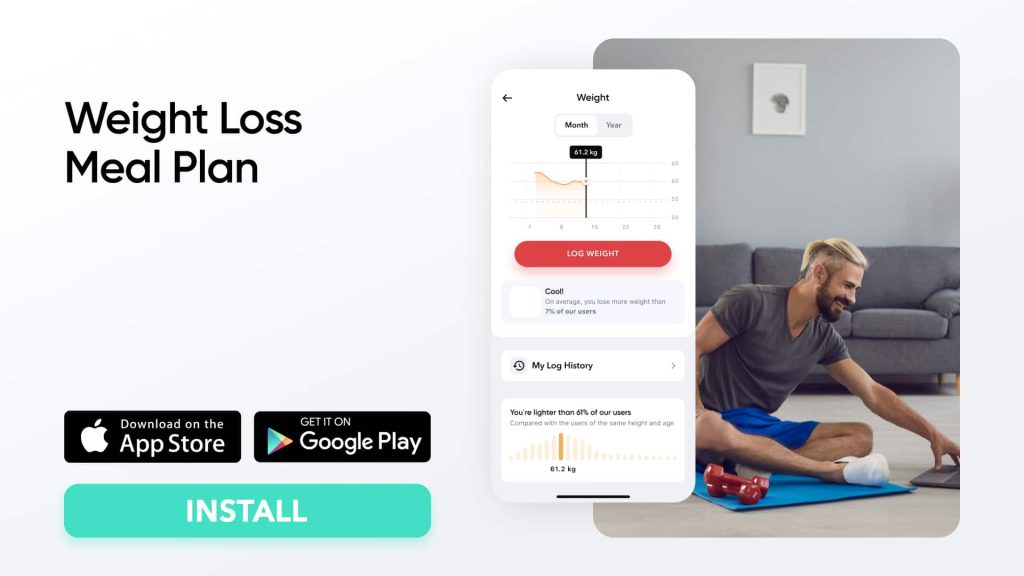Let’s face it—building muscle isn’t easy. In addition to maintaining a regular workout routine and eating a healthy diet, you also need to be patient when it comes to seeing results. But how long does it actually take to build muscle? The answer may vary depending on factors such as age, genetics, and starting point, but according to science, it is possible to see results in as little as four weeks. Of course, four weeks is the minimum amount of time needed to see results—it will take longer than that to build significant amounts of muscle. But if you’re consistent with your workouts and nutrition, you can expect to see slow and steady gains over time.
Here’s a breakdown of what you can expect to see in terms of muscle growth, based on scientific research:
Muscle Growth Timeline
The science behind muscle growth is called muscle hypertrophy, which is the process of cells increasing in size. Muscle hypertrophy can occur as a result of two different types of stressors: mechanical and metabolic (3).
Mechanical stressors are things like weightlifting and other forms of resistance training. These work by causing tiny tears in the muscle fibers, which then repair themselves and grow back stronger.
Metabolic stressors are things like sprinting and other forms of high-intensity interval training. These work by increasing the demand for energy in the muscles, which forces them to adapt and grow.
When combined, these two types of stressors cause small changes in the muscle fibers that add up over time and result in muscle growth. So how long does it take for these changes to occur?
While on a consistent and progressive workout routine, the average person can expect to see noticeable muscle growth according to this timeline:
Week 1 – Week 4
When you first start lifting weights, you may not see any change in muscle size. This is because your muscles are adapting to the new stressor (weightlifting).
Your strength will increase, but your muscles won’t necessarily get any bigger. You may notice a “pump” after every session, but this is just temporary fluid retention and not an increase in muscle size.
Read More: Bench Workouts For Strength And Size – How To Build Muscle On A Bench
Week 4 – Week 8
After a few weeks of lifting weights, you will start to see some changes in muscle size. This is because your muscles have adapted to the stressor and are now starting to grow. You will also notice that your strength has increased and that you can lift heavier weights than before.
Week 8+
After eight weeks or more of consistent lifting, you will continue to see gradual increases in muscle size and strength. The gains will become slower as you get closer to your genetic potential, but with proper training and nutrition, they will continue to occur.
It should be noted that these are only averages—some people may see results sooner, while others may take longer. Age, genetics, and starting point all play a role in how quickly you’ll see results (5).
If you’re new to weightlifting, you can expect to see noticeable gains in the first few months. However, if you’ve been lifting for a while and have reached a plateau, it may take longer to see results.
How Can You Maximize Muscle Growth?
There are a few things you can do to maximize muscle growth:
Ensure Consistent Training
When you’re trying to build muscle, you need to be consistent with your training regimen. This means lifting weights on a regular basis (ideally 3-5 times per week) and giving your muscles time to recover in between workouts (5).
If you skip workouts or only train sporadically, you won’t give your muscles the consistent stress they need to grow. This can lead to stagnation or even regression in your gains.
Progressively Overload Your Muscles
In order for your muscles to grow, you need to progressively overload them. This means gradually increasing the amount of stress you place on them over time.
For example, if you’re lifting weights, you would increase the amount of weight you’re lifting, the number of reps you’re doing, or the number of sets you’re doing. As your muscles adapt to the increased stress, you need to continue increasing it in order to keep making gains.
If you don’t progressively overload your muscles, they will quickly adapt to the stress you’re placing on them and stop growing.
A simple way to progressively overload your muscles is to start with a weight in which you can’t go past 8 reps with and do 3 sets of 8 reps. Once you can do 3 sets of more than 8 reps, increase the weight.
BetterMe app is a foolproof way to go from zero to a weight loss hero in a safe and sustainable way! What are you waiting for? Start transforming your body now!
Give Your Muscles Enough Time To Recover
In order for your muscles to grow, they need time to recover from the stress you place on them. This means taking rest days as seriously as you take your training days.
If you don’t give your muscles time to recover, they will not grow as quickly as they could. While resting, several processes take place that are essential for muscle growth, such as protein synthesis and the repair of damaged tissue.
On rest days, you don’t have to do nothing. You can have an active recovery, which is a low-intensity activity that helps improve blood flow and aids in the recovery process.
Some low-intensity activities you can do on rest days include walking, light biking, and foam rolling.
Get Adequate Sleep
Sleep is important for overall health, but it’s also critical for muscle growth. When you sleep, your body releases hormones that promote muscle growth.
If you don’t get enough sleep, your body won’t produce enough of these hormones and you won’t see as much muscle growth. Aim for 7-9 hours of sleep every night to maximize muscle growth (6).
Eat Enough Protein
Protein is the building block of muscle tissue, which means that it’s important to eat enough of it if you want to build muscle.
How much protein you need depends on a few factors, but a general rule of thumb is to consume 0.7-1 grams per pound of body weight (1). So, if you weigh 150 pounds, you should be eating 105-150 grams of protein per day.
In addition to overall protein, it’s also important to consume protein around your workouts. Eating 20-30 grams of protein before and after your workout will help maximize muscle growth.
While food sources of protein are the best way to get it, supplements like whey protein can be helpful if you’re struggling to meet your daily needs.
Read More: Sled Push Workout: How To Use It To Build Power, Speed, And Endurance
Eat Enough Calories
Building muscle is calorically expensive. What this means is that your body needs to use more energy (calories) to build muscle than it does to maintain your current weight.
This means you need to eat more calories than you’re currently eating. How many more calories you need depends on a few factors, but a general rule of thumb is to consume an extra 250-500 calories per day (4).
To make sure you’re eating enough calories, track your intake for a few days and make sure you’re eating more than you’re currently eating.
Cut Back On Cardio
While cardio is important for overall health, it can interfere with muscle growth. This is because it can lead to an increase in the hormones that promote muscle breakdown, such as cortisol. High levels of cortisol can prevent muscle growth (2).
If you want to build muscle, cut back on the amount of high intensity cardio you’re doing. For most people, 2-3 days of moderate cardio is enough to maintain their health without interfering with muscle growth.
Intense sweat sessions, working weight loss tips, lip-smacking recipes come in one package with the BetterMe app. And all of it is at your fingertips, start transforming your life now!
Final Thoughts
Building muscle takes time and consistency. However, if you train regularly, progressively overload your muscles, get adequate sleep, and eat enough protein, you will see results.
The timeline for seeing results varies from person to person, but most people can expect to see noticeable gains within the first few months of consistent training. Remember to be patient and stay the course—the results will come.
Get your personalized
meal plan!
DISCLAIMER:
This article is intended for general informational purposes only and does not serve to address individual circumstances. It is not a substitute for professional advice or help and should not be relied on for making any kind of decision-making. Any action taken as a direct or indirect result of the information in this article is entirely at your own risk and is your sole responsibility.
BetterMe, its content staff, and its medical advisors accept no responsibility for inaccuracies, errors, misstatements, inconsistencies, or omissions and specifically disclaim any liability, loss or risk, personal, professional or otherwise, which may be incurred as a consequence, directly or indirectly, of the use and/or application of any content.
You should always seek the advice of your physician or other qualified health provider with any questions you may have regarding a medical condition or your specific situation. Never disregard professional medical advice or delay seeking it because of BetterMe content. If you suspect or think you may have a medical emergency, call your doctor.
SOURCES:
- A high protein diet (3.4 g/kg/d) combined with a heavy resistance training program improves body composition in healthy trained men and women – a follow-up investigation (2015, nih.gov)
- Cortisol concentration affects fat and muscle mass among Polish children aged 6–13 years (2021, biomedcentral.com)
- Maximizing Muscle Hypertrophy: A Systematic Review of Advanced Resistance Training Techniques and Methods (2019, nih.gov)
- The Effects of Overfeeding on Body Composition: The Role of Macronutrient Composition – A Narrative Review (2017, nih.gov)
- Time-course of muscle growth, and its relationship with muscle strength in both young and older women (2017, wiley.com)
- Why you only need 7 hours of sleep (2015, sleepeducation.org)












